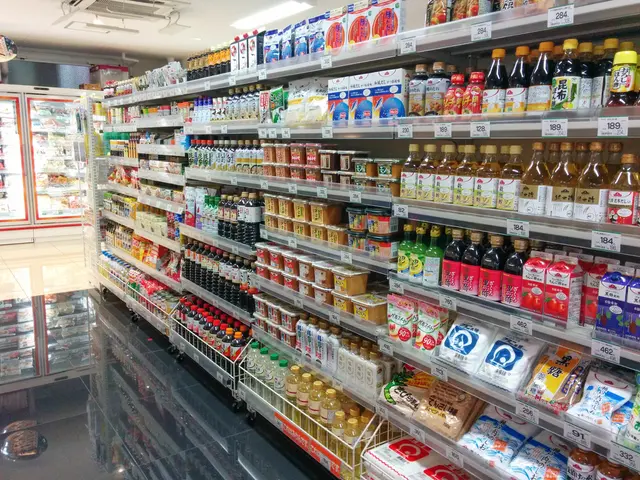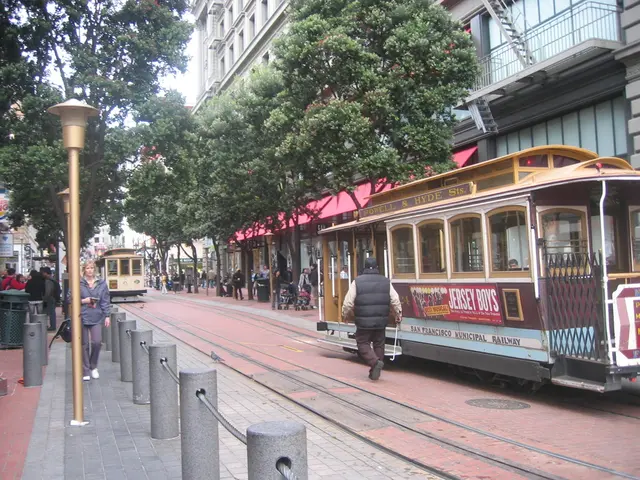Ongoing street turmoil in Turkey due to incarceration of primary political adversary of President Erdogan
A Slugfest Erupts in Turkey: Opposition Protests and Clashes with Security Forces
once again rocked Turkey as citizens took to the streets, clashing with police in cities like Ankara and Istanbul. The ongoing demonstrations, now into their second day, are demanding the immediate release of Istanbul's mayor, Ekrem Imamoglu.
Locally-sourced videos and reports relayed by Turkish media outlets depicted police using water cannons and tear gas to scatter the protesters. These scenes underscore the growing tension between the opposition and the state authorities.
Ekrem Imamoglu, a formidable political adversary to President Recep Tayyip Erdogan, was apprehended by Turkish authorities on Wednesday over allegations of corruption and terrorism. Moreover, detention orders were issued for approximately 100 other individuals associated with Imamoglu, including his press advisor, Murat Ongun.
On the previous day, Friday's protests followed a series of violent confrontations on Thursday. At least 16 police officers were injured during the nationwide altercations, with 53 individuals detained, according to Interior Minister Ali Yerlikaya. Regrettably, the extent of protester injuries during the ongoing protests remains undisclosed.
On Thursday, the main opposition Republican People's Party (CHP) leader, Ozgur Ozel, escalated the situation, addressing the crowds from a bus rooftop in Istanbul. Ozel declared, "We will not remain indoors as you keep our elected representative imprisoned. Starting now, we will take to the streets. Do they want me to call the people to the streets? Yes, yes, yes!"
President Erdogan has dismissed the escalating opposition as nothing more than empty theatrics and slogans that Turkey no longer has the time for.
Defying a four-day prohibition on street gatherings, thousands reassembled outside the Istanbul municipality building on Friday, waving Turkish flags and continuing their raucous chants. University students also joined the fray in Ankara and Izmir, areas with similar bans in effect.
Ekrem Imamoglu secured his position as mayor in 2019 and once more in 2024. The next presidential election is penciled in for 2028; however, some analysts speculate that Erdogan might call for early elections. This maneuver would allow him to skirt term limits.
Insights
- Turkey's Current Political Crisis: The ongoing protests in Turkey have intensified, reflecting deep-seated discontent with the government, particularly in light of Ekrem Imamoglu's detention. As a strong opposition figure, Imamoglu's arrest is seen as an attempt by President Erdogan to consolidate power and neutralize a potential threat to his rule [1][2].
- Economic Turmoil: Economic factors, such as high inflation and unemployment, have eroded support for Erdogan, generating growing dissatisfaction among various segments of society [1].
- Election Uncertainties: Speculation surrounds the possibility of early elections, with some analysts suggesting that President Erdogan may call for them to bypass term limits [1]. Such elections, if held, could significantly alter the political landscape of Turkey.
- Protesters in the Middle East, specifically in Turkey, continued their demonstrations into the second day, demanding the immediate release of Imamoglu, the mayor of Istanbul, who was arrested over allegations of corruption and terrorism.
- Reports suggest that in 2024, Ekrem Imamoglu, a formidable opponent to President Tayyip Erdogan, was re-elected as Istanbul's mayor. This political landscape might change drastically if President Erdogan decides to call for early elections, a maneuver that could circumvent term limits.
- As the world watches the escalating tension between the opposition and the state authorities in Turkey, concerns are growing about the potential impact of these protests on the stable political climate of the Middle East region, particularly in light of the upcoming presidential election in 2028.




